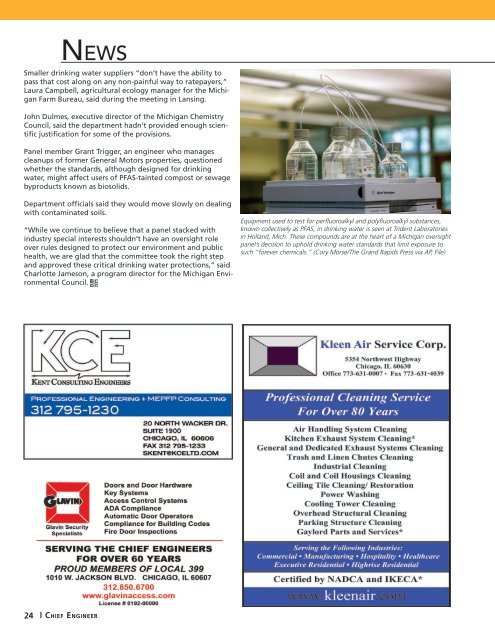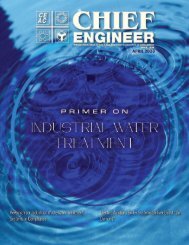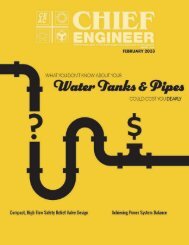CEAC-2020-04-April
Create successful ePaper yourself
Turn your PDF publications into a flip-book with our unique Google optimized e-Paper software.
News<br />
Smaller drinking water suppliers “don’t have the ability to<br />
pass that cost along on any non-painful way to ratepayers,”<br />
Laura Campbell, agricultural ecology manager for the Michigan<br />
Farm Bureau, said during the meeting in Lansing.<br />
John Dulmes, executive director of the Michigan Chemistry<br />
Council, said the department hadn’t provided enough scientific<br />
justification for some of the provisions.<br />
Panel member Grant Trigger, an engineer who manages<br />
cleanups of former General Motors properties, questioned<br />
whether the standards, although designed for drinking<br />
water, might affect users of PFAS-tainted compost or sewage<br />
byproducts known as biosolids.<br />
Department officials said they would move slowly on dealing<br />
with contaminated soils.<br />
“While we continue to believe that a panel stacked with<br />
industry special interests shouldn’t have an oversight role<br />
over rules designed to protect our environment and public<br />
health, we are glad that the committee took the right step<br />
and approved these critical drinking water protections,” said<br />
Charlotte Jameson, a program director for the Michigan Environmental<br />
Council.<br />
Equipment used to test for perfluoroalkyl and polyfluoroalkyl substances,<br />
known collectively as PFAS, in drinking water is seen at Trident Laboratories<br />
in Holland, Mich. These compounds are at the heart of a Michigan oversight<br />
panel’s decision to uphold drinking water standards that limit exposure to<br />
such “forever chemicals.” (Cory Morse/The Grand Rapids Press via AP, File)<br />
24<br />
| Chief Engineer


















